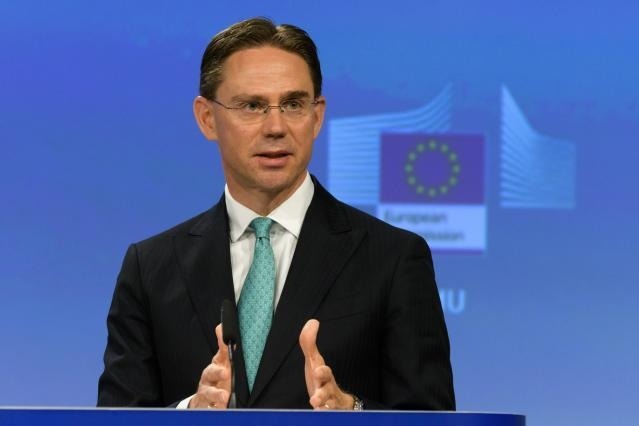The European Commission announced last week an action plan on sustainable finance to encourage the EU financial sector to invest in a greener and cleaner economy. At this stage the proposals are focussed on environmental investments and social factors are expected to be included later on. Global Witness, known for its campaign against “blood diamonds” and for defending environment activists, called on the Commission to work for stronger safeguards to stop harmful investments.
“The Commission’s proposals have failed to go far enough - it is time for robust regulations to curb the excesses of financial deregulation which have driven global deforestation, land grabbing and human rights abuses,” commented Rachel Owens, Head of EU Advocacy at Global Witness.
The Commission states that EU aims at becoming a global leader in fighting climate change and achieving the reductions in greenhouse gas emissions agreed in Paris in December 2015. The impact of climate change already threatens financial stability and leads to major economic losses through floods, land erosion or draughts.
“If we wake up too late to the reality of global warming, many of today's investments could end up being redundant,” said Jyrki Katainen, Vice-President responsible for Jobs, Growth, Investment and Competitiveness, at a press conference (24 May).
"To achieve the EU's 2030 climate targets, we need around €180 billion a year of additional investments in energy efficiency and renewable energy. Mobilising private capital to fund sustainable investment is essential,” he added.
The action plan aims at channelling more investments into environmentally-sustainable activities by a harmonised EU-wide classification system (“taxonomy”). Activities which contribute to at least six environmental objectives, such as climate change mitigation and protection of water resources and ecosystems, will qualify as sustainable.
Another key feature in the action plan concerns the obligations of institutional investors to disclose and report to individual clients on risks and how their investments are impacting the environment. Investors are already now obliged act in the best interests of their clients.
The proposals will become binding through delegated acts which will be adopted by the Commission under new and existing regulations. They will create incentives to invest in green activities but not prescribe market participants what to invest in.
The proposal on investor duties will be discussed in the European Parliament and the Council, with the aim to finalise it at the latest by the 2019 EU elections. The classification system will be developed gradually and it will take a few years to adopt all delegated acts.
The intention is to expand criteria not only on environmental factors but also on social conditions and good governance. Social sustainability includes working conditions, land rights of local communities, and health and safety. Governance could be tackling tax evasion and corruption.
"It's a gradual process,” confirmed Kaitanen at the press conference without entering into any details. “We´ll start with green finance and then we’ll move to other sectors. Social sustainability will be next step."
The Commission’s action on sustainable growth meets some of the expectations of the NGOs working for clean and responsible investments. “The proposals are the first steps towards implementing some of the recommendations of the EU’s High-Level Expert Group on sustainable finance,” commented the European Policy Office of WWF.
But Sebastien Godinot, economist at WWF, warned at a press conference last week that time is running out to meet the environmental targets and that millions of people will be forced to flee their homes because of climate change. “To succeed and mobilise political support of those affected we also need to address the social issues,” he said.
Eleni Choidas, Senior EU Affairs Officer at ShareAction, a London-based NGO which works for aligning the interests of ordinary savers and institutional investors, said that voluntary measures are slow and not enough. For long-term effects, legislation is necessary. Leglislation should also incluse minimum standards on human rights.
Deforestation and land grabbing
Global Witness has investigated and exposed several cases which lay bare how EU investors were backing land grabs with devastating consequences for people. A study of such investments in eight tropical countries found that the majority of them involved land already inhabited by local communities.
Around half of all tropical deforestation since 2000 has been due to illegal conversion of forests for commercial agriculture. Deforestation drives climate change. These cases also involve companies in development countries financed by European banks.
A report by Global Witness revealed how Vietnamase rubber companies acquired vast areas of land at the expense of local communities in Laos and Cambodia. Deutsche Bank was a source of finance to the companies and withdrew its investment after the disclosure by Global Witness. After its report, the value of the bank shares fell.
An activist was murdered in March 2016 in Honduras because of her opposition to a hydro-electric dam built on indigenous land. This project was partly financed by a Dutch bank. Respecting environmental and social concerns is sound investment policy in the long term, says Global Witness.
Most land disputes, environmental risks and abuses of human rights are identified and occur in the later phases of a project. According to Global Witness, mandatory due diligence investigations are required in the feasibility stage of a project to prevent EU finance leading to environmental degradation and social harms.
M. Apelblat
The Brussels Times

